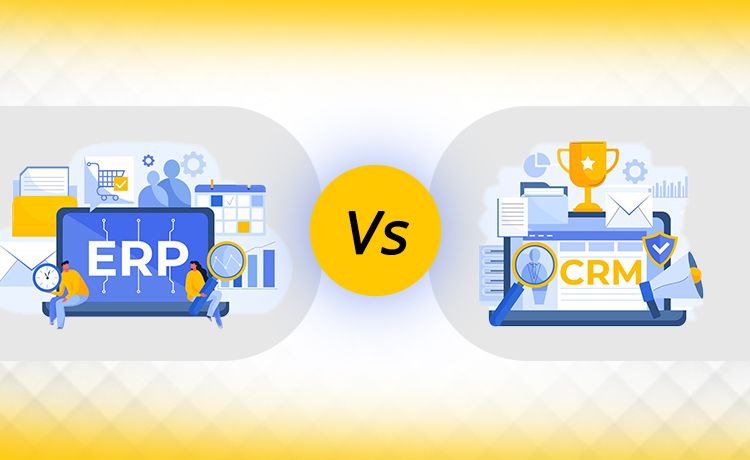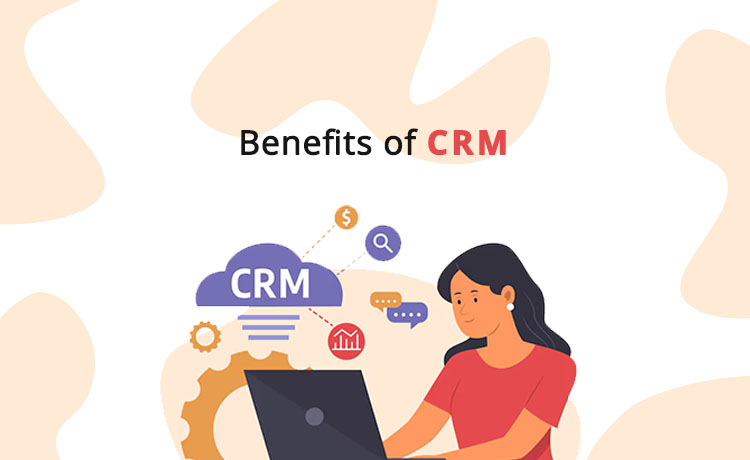In today’s competitive business landscape, companies rely on technology to streamline operations and improve customer relationships. Two essential software solutions that often come up in business discussions are Customer Relationship Management (CRM) and Enterprise Resource Planning (ERP). While they serve different purposes, both systems play a crucial role in business success. In this blog, we will explore the key differences between CRM and ERP, their benefits, and how businesses can determine which solution best suits their needs.
What is CRM?
At its core, Customer Relationship Management (CRM) refers to the processes and systems used to manage an organization's interactions with potential and existing customers. When discussing CRM, we typically refer to software solutions like Salesforce and Microsoft Dynamics CRM, which help businesses automate and streamline sales, customer service, and marketing efforts.
Modern CRM applications go beyond just managing customer interactions—they integrate various aspects of the customer experience to enhance satisfaction, build loyalty, and ultimately increase customer value. CRM enables businesses to identify potential leads, nurture them through the sales pipeline, and convert them into customers. Once a customer is onboarded, CRM systems help maintain and strengthen the relationship, encouraging repeat business through higher-value purchases or more frequent transactions.
Key Features of CRM:
- Contact Management
- Sales Automation
- Marketing Automation
- Customer Support
- Analytics and Reporting
Stores customer information, such as names, emails, phone numbers, and communication history.
Helps sales teams track leads, manage follow-ups, and close deals more efficiently.
Assists in creating targeted campaigns, email marketing, and customer segmentation.
Integrates ticketing systems and chat support for improved customer service.
Provides insights into customer behavior, sales performance, and marketing effectiveness.
Benefits of CRM:
- Enhances customer engagement and satisfaction.
- Increases sales efficiency and revenue growth.
- Improves team collaboration and productivity.
- Provides valuable insights for data-driven decision-making.
What is ERP?
Enterprise Resource Planning (ERP) software is a comprehensive system designed to manage a company’s internal operations, such as finance, inventory, supply chain, and human resources. ERP centralizes data from different departments, enabling seamless communication and process automation across the organization.
Key Features of ERP:
- Financial Management:
- Inventory and Supply Chain Management:
- Human Resources (HR) Management:
- Manufacturing and Production Planning:
- Integration and Scalability:
Tracks income, expenses, and financial reporting.
Monitors stock levels, supplier relations, and logistics.
Manages employee data, payroll, and recruitment processes.
Helps in scheduling, resource allocation, and quality control.
Connects various business functions for seamless operations.
Benefits of ERP:
- Enhances operational efficiency and cost savings.
- Reduces manual errors and improves data accuracy.
- Provides a centralized platform for better collaboration.
- Supports business growth and scalability.
Key Differences Between CRM and ERP
| Feature | CRM | ERP |
|---|---|---|
| Primary Focus | Customer interactions and sales | Internal business operations |
| Users | Sales, marketing, and customer support teams | Finance, HR, supply chain, and operations teams |
| Data Managed | Customer data, leads, sales pipeline | Financials, inventory, employee records |
| Functionality | Enhances customer engagement and sales growth | Improves efficiency and resource management |
| Automation | Sales and marketing automation | Business process automation |
| Goal | Increase revenue and customer satisfaction | Reduce costs and improve efficiency |
Which One Does Your Business Need?
Choosing between CRM and ERP depends on your business goals and operational needs. If your focus is on customer relationships, sales, and marketing, a CRM system will be the best fit. However, if you need to streamline internal operations, manage finances, and improve supply chain efficiency, then an ERP system is the right choice.
Many businesses benefit from both CRM and ERP, as they complement each other. CRM helps bring in and manage customers, while ERP ensures smooth internal operations to fulfill customer demands efficiently.
Conclusion
Both CRM and ERP Solution are powerful tools that serve different but equally important functions in a business. While CRM enhances customer engagement and drives sales, ERP optimizes internal processes and improves efficiency. Understanding their differences will help businesses choose the right solution or implement both for a comprehensive approach to growth and success.
Frequently asked questions:-
1.) What does the CRM system do?
A CRM system helps manage customer data, sales management, delivers actionable insights, integrates with social media and facilitates team communication.
2.) What are the top 5 CRM systems?
Some of the popular CRM systems are Pipeliner, Zoho CRM, Salesforce desk, Monday.com, and Freshdesk.
3.) Why is CRM needed?
CRM is an essential tool for lead generation because it frequently deals with past customer data such as previous marketing campaigns, purchases and service satisfaction.
4.) How much does a CRM system cost?
CRM system costs start from around $12 per user, per month for small businesses. More advanced packages for larger organisations range from $50 to $150 per user, per month, while the most expensive CRM systems charge up to $300 per user, per month.
5.) How much does an ERP system cost?
Small and medium size companies can consider costs ranging from $150,000 to $750,000. The cost of ERP includes the costs of software, hardware, maintenance, training, data conversing and reengineering.








